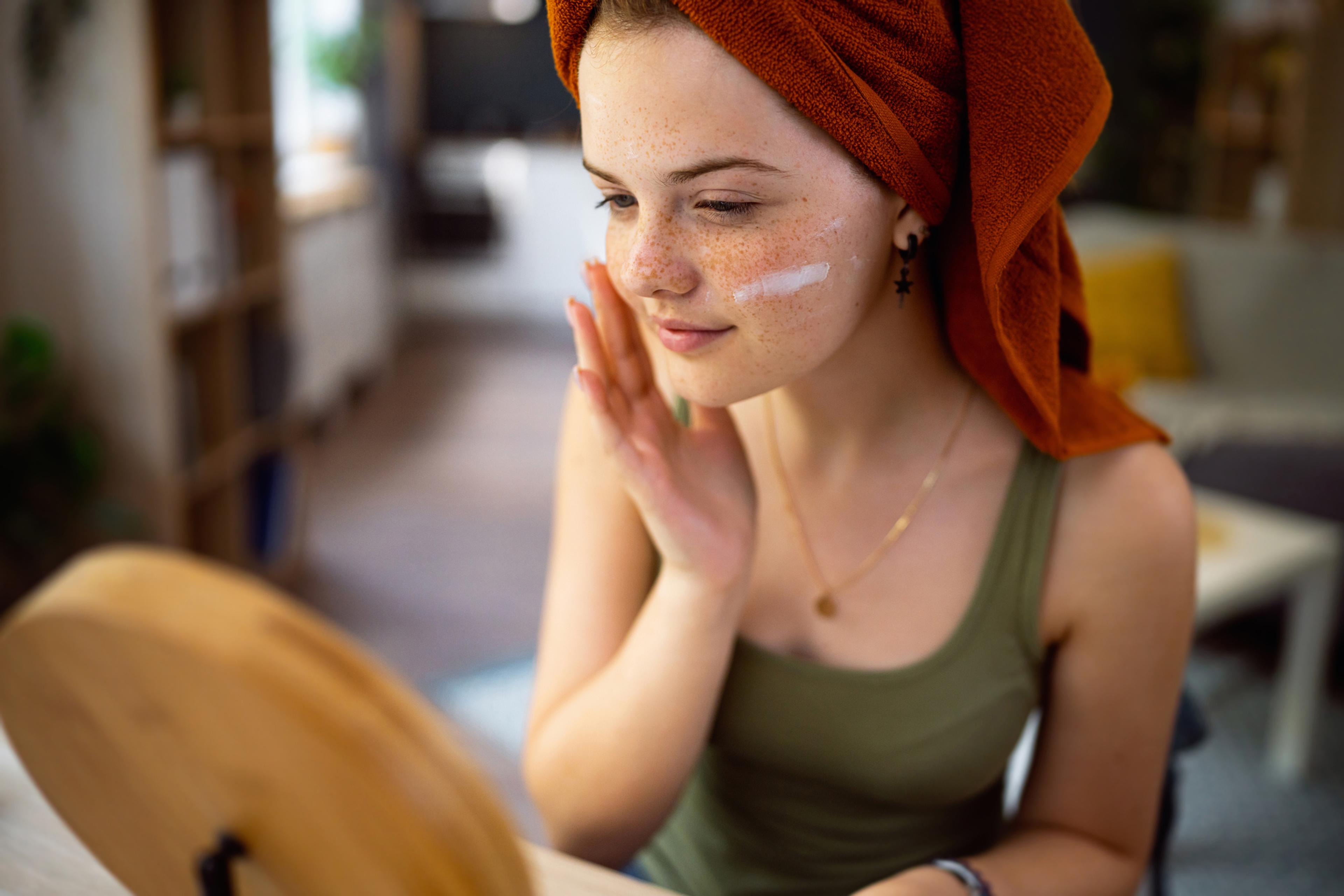At Equest Center, Horses are Therapeutic

Julie Bitely
| 3 min read

Having a son diagnosed with autism changed Kathy Ryan’s perception of what being a mom would be like.
Ryan tried a lot of different programs to help her son with sensory processing issues, but couldn’t find a good fit for D.J. Pezzato, now 22.
When he was four, she decided to take him to the Equest Center for Therapeutic Riding in Rockford. At first, putting the helmet on made him scream, but once he got up on a horse, he was all smiles.
“He smiled the entire ride home,” Ryan said. “This was a place where he fit.”
It was also a place Ryan felt she fit and where her purpose as a mom took shape. Today, Ryan serves as the executive director for the nonprofit center, which is celebrating 25 years.
With a team of 34 horses of all different sizes and breeds, the center utilizes equine therapy to help riders with a variety of special needs including physical, mental, and social or emotional challenges. About 150 to 180 people ride at the center each week, all year round, with ages ranging from the very young to the very old. The program integrates academic, social and physical skills, using the horse as a catalyst.
![DSCN2610[1]](https://cdn.sanity.io/images/ruord509/production/a29ffb6d189b7db42eef2b1276e0578e04043fc8-1200x900.jpg?w=3840&q=75&fit=clip&auto=format)
Client Program Coordinator Kelly Alcock said every client has a plan tailored specifically to their needs. People with balance issues, spina bifida, and cerebral palsy might use therapeutic riding as a way to develop better control of their trunk and core muscles. People re-learning how to walk or dealing with multiple sclerosis might find that riding a horse helps to retain muscle tone in a way that conventional therapy might not. Horses with a faster step can help autistic individuals focus and can also help with stress relief and calming. Riding a horse can even help parapalegic patients remember muscle movement and stroke victims regain eye focus.
Instructor Beth Anderson said the warmth of the horses can help muscles relax. It’s also a way to receive therapy without it feeling like a chore.
“It’s such a fun therapy that people don’t even think of it as therapy,” Anderson said. “We just try to keep it really fun.”
![DSCN2599[1]](https://cdn.sanity.io/images/ruord509/production/1c8b6e05edd49af711201630e03f8bbf3ae41cf4-1200x900.jpg?w=3840&q=75&fit=clip&auto=format)
Ryan said compared to a cold, sterile environment, the barn and riding stables at Equest provide a home-away-from-home setting.
“The kids don’t realize they’re working,” Ryan said.
Vocational programming available at Equest offers opportunities for people to come in and perform jobs such as cleaning the brushes and saddles. Seniors and military veterans are also able to ride horses through programs geared toward those populations. Some of the miniature horses go on visits to hospice patients and the center has partnered with Gilda’s Club to make the horses available for people who’ve lost a loved one.
The animals can even be utilized to teach life skills. The center works with some group homes who use their riding day as an exercise in helping their residents learn time management, proper public behavior, and other important lessons – riding the horse is the reward.
No matter why people come to Equest, they’re accepted with open arms. The emphasis isn’t on limitations, but rather, the amazing things individuals are capable of.
![DSCN2601[1]](https://cdn.sanity.io/images/ruord509/production/f4c1a207802df8ed9f7d837dcf8c12c17f8feb9e-1200x900.jpg?w=3840&q=75&fit=clip&auto=format)
“They come here and no one’s judged,” she said. “Everyone’s accepted here.”
Ryan said while the people who work at the center certainly extend that hospitality, an even bigger welcoming presence are the horses themselves.
“They have their own language and they’re just very accepting,” Ryan said.
New classes start Sept. 14 at Equest. Ryan said there’s always a waiting list and the center is always looking for new volunteers, as well as donations.
If you enjoyed this blog post, you might also like:
Photo credit: Julie Bitely





